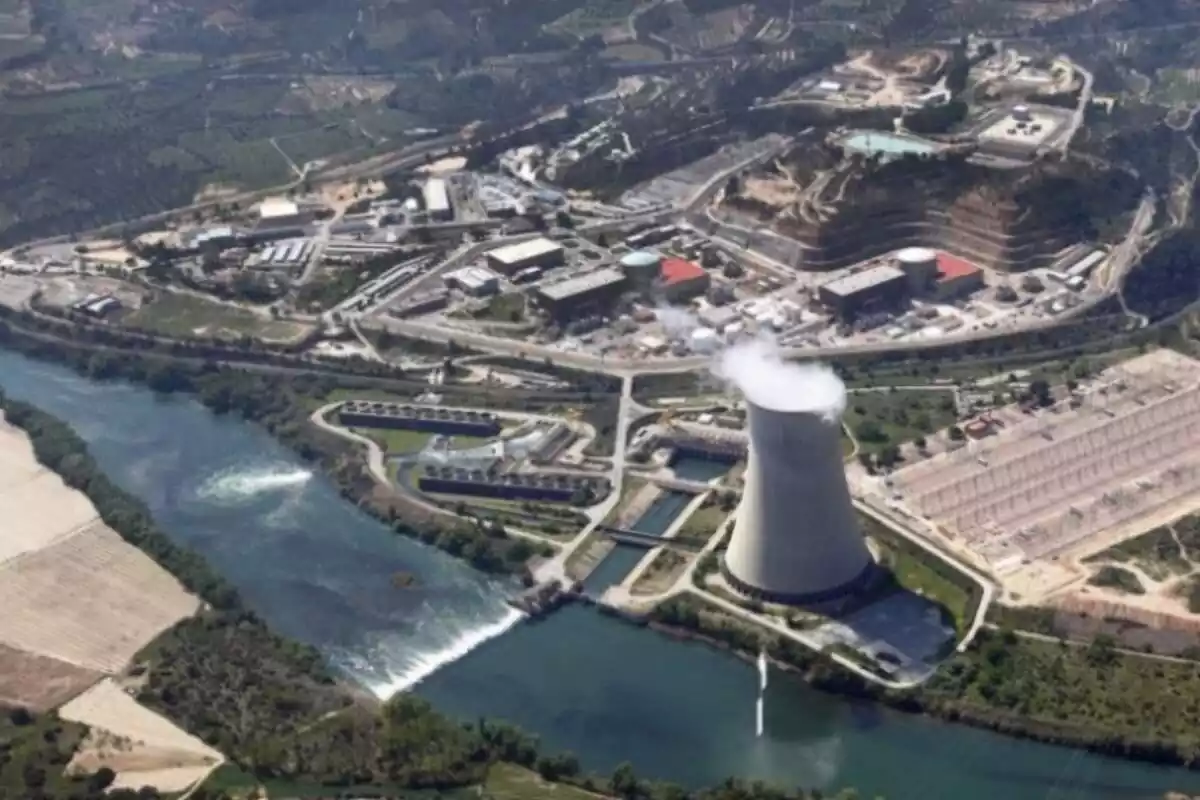
ERC's Hypocrisy with Nuclear Power: One Thing in Catalonia, Another in Madrid
Republicans Will Vote Alongside Junts, PP, and Vox in Favor of Reconsidering the Closure of the Power Plants
The national energy plan of the socialist government foresees the closure of nuclear power plants between 2027 and 2030. This includes the three reactors of Escó I, Escó II, and Vandellós II, in the province of Tarragona. These plants provide 60% of the electricity in Catalonia and cover more than 50% of its energy needs.

In response, parties like PP and Vox have long been calling for an extension of the nuclear plants to ensure the electricity supply in Catalonia. Last week's blackout has reopened the debate. PP will bring a non-legislative proposal to Congress this Tuesday to "reconsider" the scheduled closure of the nuclear plants.
PP proposes to extend the useful life of the nuclear plants to "lower the cost of electricity, reduce emissions, and strengthen the stability of the electrical grid."
This is the same proposal that PP brought to the Catalan Parliament at the beginning of April. But that proposal was rejected with Junts's abstention and ERC's opposing vote.
Junts Keeps a Certain Coherence
ERC now joins the evil right to extend the life of the nuclear plants. ERC and Junts will vote alongside PP and Vox in this Tuesday's vote in Congress. The post-convergents have shown a certain coherence on this issue, but in contrast, Esquerra defends one thing in Catalonia and another in Madrid.
Junts already opposed the closure of the nuclear plants at the time due to the threat it posed to the energy sector in Catalonia. The post-convergents aligned with Catalan entrepreneurs on the dire consequences of the nuclear closure. However, the post-convergents used the "energy sovereignty" wildcard to avoid voting in favor of PP's motion in the Catalan Parliament.
In contrast, they will now vote in favor of PP's motion in the Congress of Deputies. The party keeps its same reasons. But it is easier to vote in favor in the Congress of Deputies than in Catalonia, where the discourse of energy sovereignty sells more.
ERC Shows Two Faces
The most flagrant is ERC, whose rhetoric in Madrid is opposite to what it uses in Catalonia. In the debate in the Ecological Transition Commission in the Parliament, ERC voted against urging the Government to extend the life of the nuclear plants. Now it will vote in favor of reviewing the nuclear blackout.
In the Parliament, Montse Vergés defended "an energy sovereignty with renewable energies without affecting the territory and with competitive prices." And she also claimed "the foundations of the energy model" implemented during Pere Aragonès's government.

In contrast, in Congress, ERC defends a "realistic and pragmatic" position against the closure of the nuclear plants. "There is no other energy, economic, or employment alternative for the affected areas," says its spokesperson Jordi Salvador. Precisely what the PP motion defended, which ERC rejected in the Catalan Parliament.
The height of cynicism is that the republicans blame the socialist government for not having done their homework so that renewables are an alternative. It was precisely their government, with Pere Aragonès at the helm, who barely invested anything in renewables.
This serves as a pretext to justify their vote alongside the right. "ERC is forced to endorse right-wing measures like not closing the nuclear plants because the Government has not implemented a reconversion," says Salvador.
More posts: